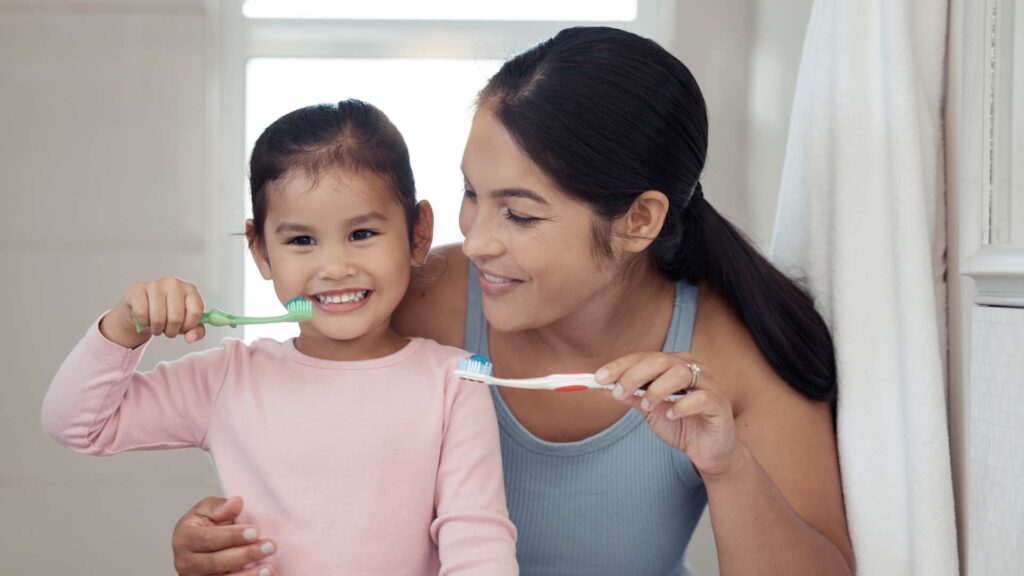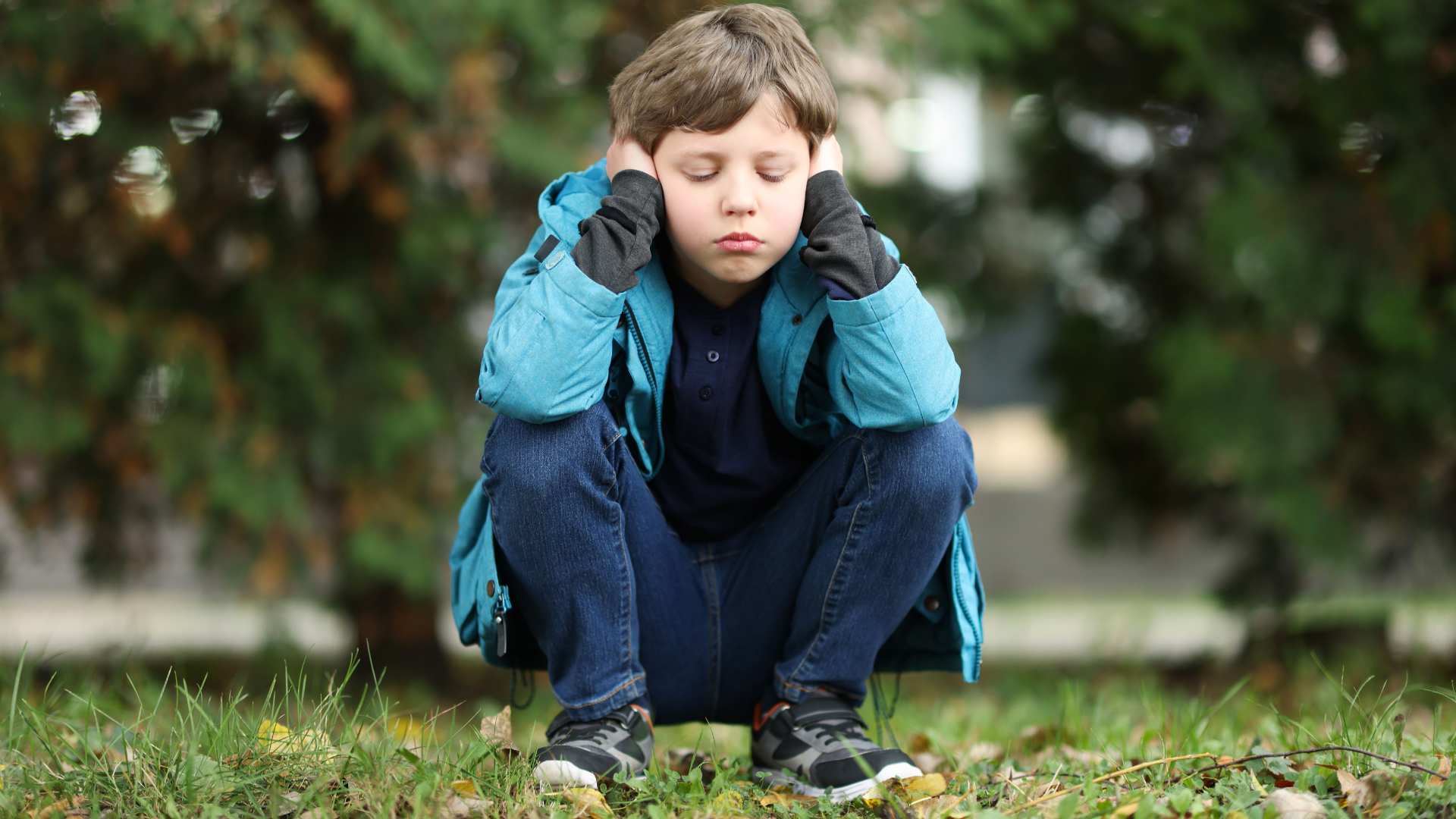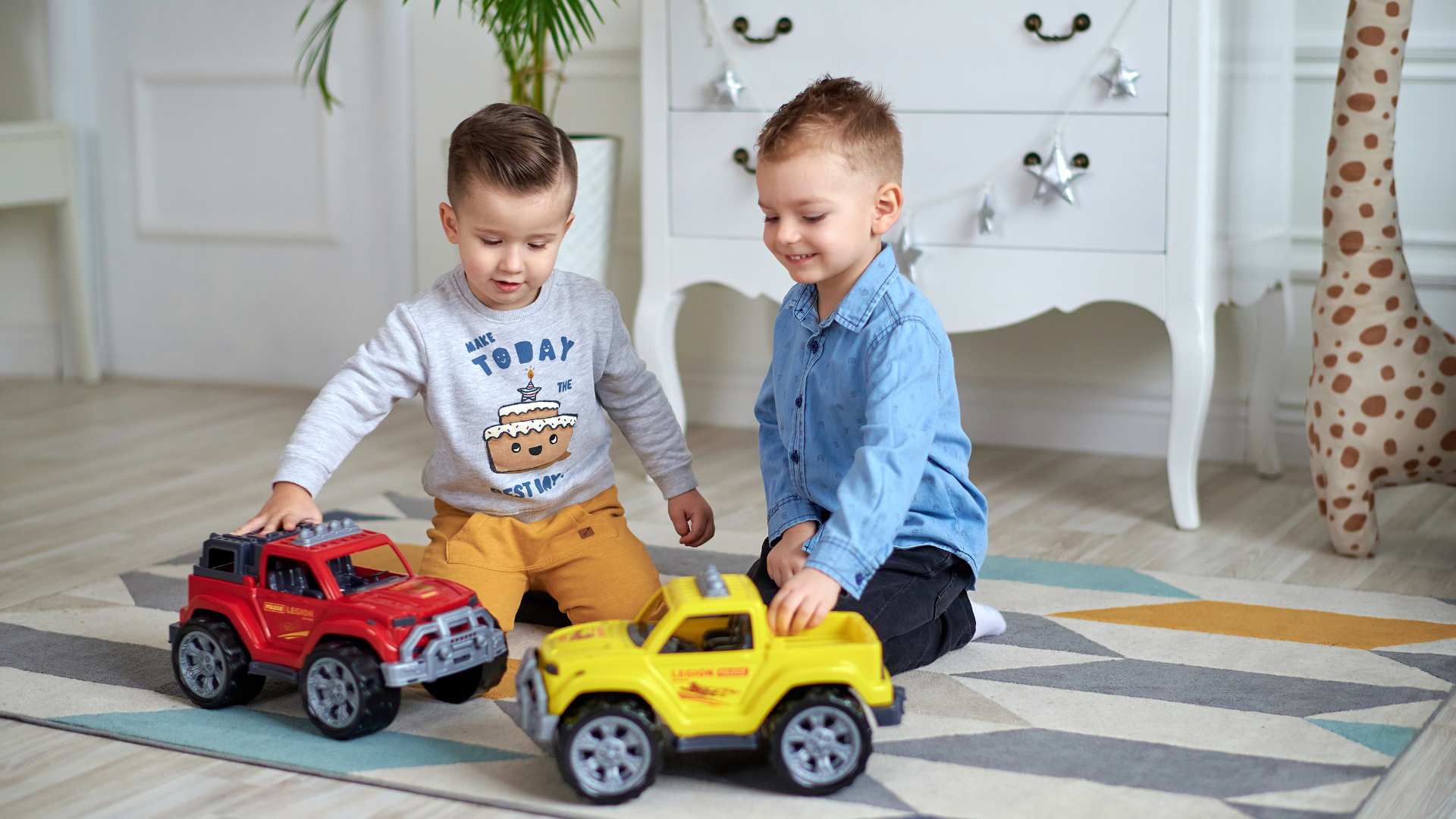Tabla de contenido
How can I teach self-care skills for kids with autism?
Every child deserves the chance to feel capable and proud of what they can do. For children with trastorno del espectro autista (ASD), learning to take care of themselves is more than just completing daily routines; it’s a key part of growing up, feeling confident, and becoming independent. For some, learning everyday self-care tasks can be more complex due to sensory sensitivities, communication barriers, motor coordination challenges, and differences in executive functioning.
Parents often ask how to help their children master everyday tasks like brushing their teeth, getting dressed, or managing mealtimes. The answer begins with understanding what self-care skills are and how they can be taught with patience, structure, and the proper support.
En este blog de ABA Centers of New Jersey, we’ll explore self-care skills for kids with autism, the types of daily living and life skills that help children thrive, and how families and professionals can teach them successfully.
What Are Self-Care Skills and Life Skills in Autism?

When we talk about self-care skills, we’re referring to the set of tasks an individual uses to take care of their own physical hygiene, health, and daily living needs. For children with autism, mastering these skills often requires structured teaching, consistent practice, and supportive environments.
Según Autism Speaks, life skills, including self-care, cover areas such as personal hygiene, dressing, feeding oneself, managing possessions, and time. In this context, autism and self-care refer to how children on the autism spectrum engage with, learn, and apply these self-care skills, often with extra scaffolding, because the traditional “learn by watching” method may need adaptation. The benefits go far beyond the task itself: success in self-care skills supports autonomy, social inclusion, self-esteem, and quality of life.
4 Reasons Why Self-Care Skills for Kids with Autism Matter
Promoting Confidence and Independence
Learning self-care skills allows children with autism to experience success in meaningful ways. Each new skill mastered, whether it’s zipping a jacket or washing hands, shows them that they can take care of themselves. That growing confidence fuels motivation and helps children participate more fully at home, school, and in the community.
Reducing Stress and Building Predictability
A consistent routine makes the world feel more predictable. Many children with autism rely on structure to reduce anxiety. When self-care activities happen at regular times and in familiar ways, children know what to expect. That sense of order helps them stay calm and focused.
Supporting Social Participation
Basic self-care skills, such as grooming, dressing, and eating, make it easier for children to interact with others comfortably. A child who feels prepared and confident is more likely to join group activities and make social connections.
Encouraging Long-Term Independence
Como lo señala children grow older, their self-care abilities prepare them for more independence in adolescence and adulthood. These skills form the foundation for future responsibilities such as managing school materials, preparing simple meals, and eventually caring for themselves with less supervision.
Key Self-Care Skills for Kids with Autism
Every child learns differently, but there are several key areas to focus on when developing self-care skills for children with autism. A study published in the International Journal of Nursing Sciences identifies three main aspects of self-care:
1. Awareness – Understanding personal needs.
2. Self-Control – The ability to manage emotions and behaviors during daily tasks.
3. Self-Reliance – The focus on independently managing personal care to encourage independence.
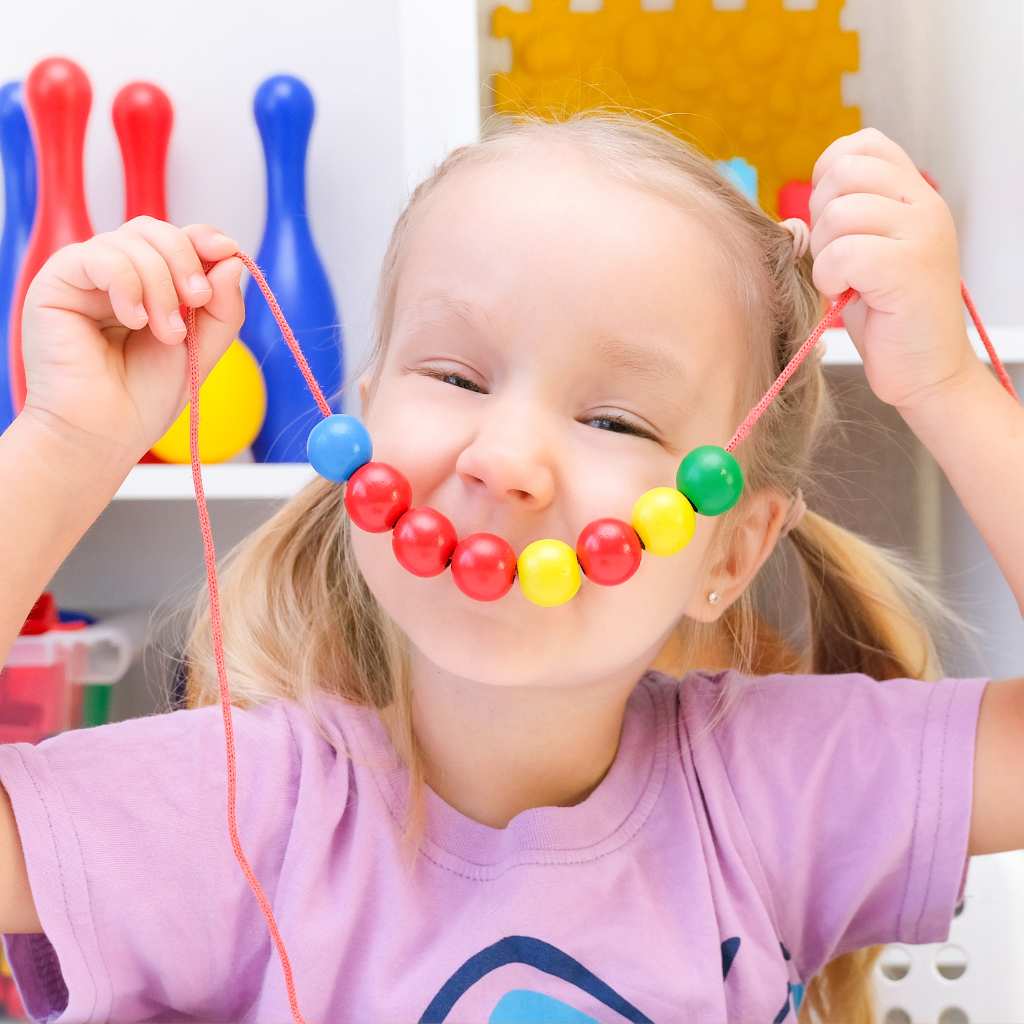
These areas are essential for promoting self-care skills in kids with autism.
Some examples include:
Personal Hygiene
- Brushing teeth and washing hands
- Bathing or showering
- Combing hair and caring for nails
- Toilet training and bathroom routines
Dressing and Clothing
- Choosing weather-appropriate clothes
- Putting on and removing clothing independently
- Using zippers, buttons, and fasteners
- Folding and organizing clothes
Feeding and Mealtime
- Using utensils correctly
- Pouring drinks or serving snacks
- Cleaning up after meals
- Trying new foods at a comfortable pace
Daily Living and Organization
- Making the bed or tidying personal spaces
- Organizing school items or toys
- Completing small chores with guidance
- Following morning and evening routines
Emotional and Self-Regulation Skills
- Identifying feelings such as hunger, frustration, or fatigue
- Asking for help when needed
- Taking breaks when overwhelmed
- Managing transitions between activities
Each skill is a building block toward greater independence. The key is to teach these steps systematically and celebrate every bit of progress along the way.
8 Helpful Strategies to Teach Self-Care Skills
Teaching children with autism to manage self-care takes time, but it’s one of the most rewarding parts of parenting. Here are strategies that help make the process effective and encouraging.
Break Each Task into Small Steps
Start by dividing each activity into simple, clear actions. For instance, instead of saying “Get dressed,” guide your child through smaller steps like “Pick your shirt,” “Put one arm in,” and “Now the other arm.” This method helps the child understand the sequence and reduces frustration.
Pictures, charts, or short videos can make routines easier to follow. Many children on the spectrum are visual learners, so seeing each step helps them remember what comes next.
Practice in Natural Settings
Teach each skill where it happens. For example, practice brushing teeth in the bathroom or setting the table in the kitchen. This approach helps your child connect learning with real-life situations.
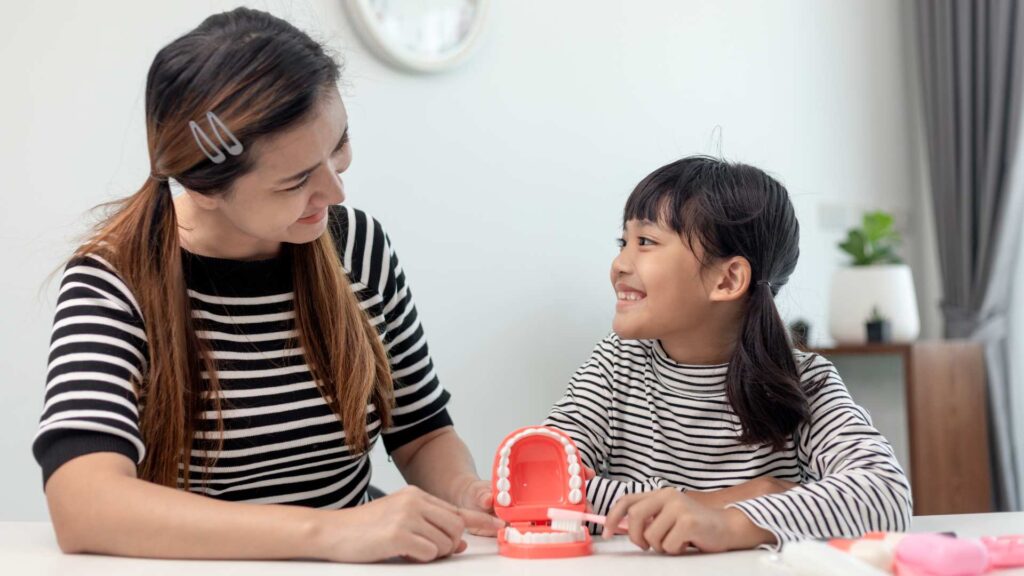
Provide Positive Reinforcement
Celebrate every attempt, even if it’s not perfect. Praise, high-fives, or small rewards build motivation. Reinforcement encourages effort and persistence.
Adjust for Sensory Differences
Pay attention to sensory preferences. If your child dislikes certain textures or sounds, try alternatives like softer towels, quieter toothbrushes, or unscented soaps. Minor adjustments can make self-care routines more comfortable.
Encourage Choices
Give your child small decisions to make, such as choosing a toothbrush color or which shirt to wear. Allowing choice builds independence and increases cooperation.
Stay Consistent
Consistency is essential. Establish predictable times for daily self-care activities so your child knows what to expect. A regular schedule helps them practice and retain skills.
Collaborate with Teachers and Therapists
Share strategies and visuals with your child’s teachers and therapy team. When everyone uses the same approach, progress is faster and more consistent across settings.
The Role of ABA Therapy in Teaching Self-Care Skills
La terapia de Análisis del Comportamiento Aplicado (ABA) therapy is one of the most effective tools for helping children with autism learn self-care skills. Through evidence-based methods, ABA breaks tasks into manageable parts, uses prompts and reinforcement, and builds independence step by step.
ABA therapists focus on practical goals that make a real difference in daily life—such as handwashing, toothbrushing, or preparing a snack independently. Using data-driven strategies, they monitor progress closely and adjust their approach to fit each child’s learning style. What makes ABA especially valuable is its ability to integrate learning across different environments. A child might practice brushing teeth during therapy, then receive guided support at home with their parents. Over time, the skill becomes natural and self-sustaining.
ABA Centers of New Jersey: Supporting Growth and Everyday Success
En ABA Centers of New Jersey, we focus on helping children and teens on the autism spectrum reach meaningful milestones that improve daily living and independence. We design therapy programs that emphasize self-care skills, life skills, and overall development through fun, engaging, and personalized learning.
Our certified BCBAs and RBTs provide one-on-one ABA therapy sessions in various settings—at home, school, in the community, or at our modern centers located in Bridgewater, Edison, Hoboken, Hackensack, Mount Laurel, and other communities across New Jersey. Collaboration with families is essential. Parents receive guidance on how to reinforce progress at home, making therapy a true partnership. Beyond therapy sessions, our seasonal events and community activities bring families together to share experiences, celebrate achievements, and build connections that last.
To learn more about our ABA programs and how we can support your family, call us at (855) 640-7888 o contáctanos en línea. Our mission is to help your loved one with autism build confidence, independence, and the self-care skills needed to thrive at every stage of life.

